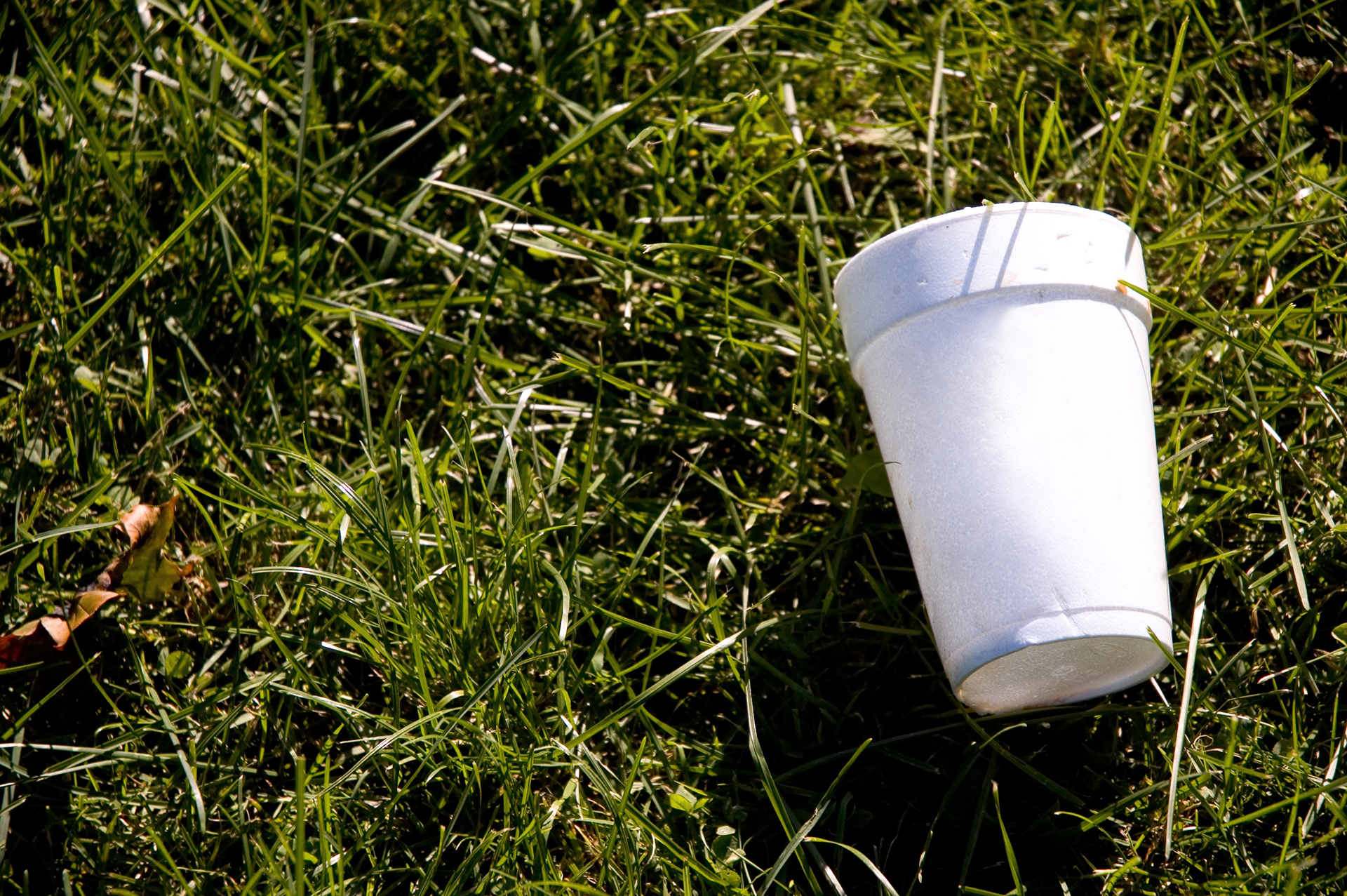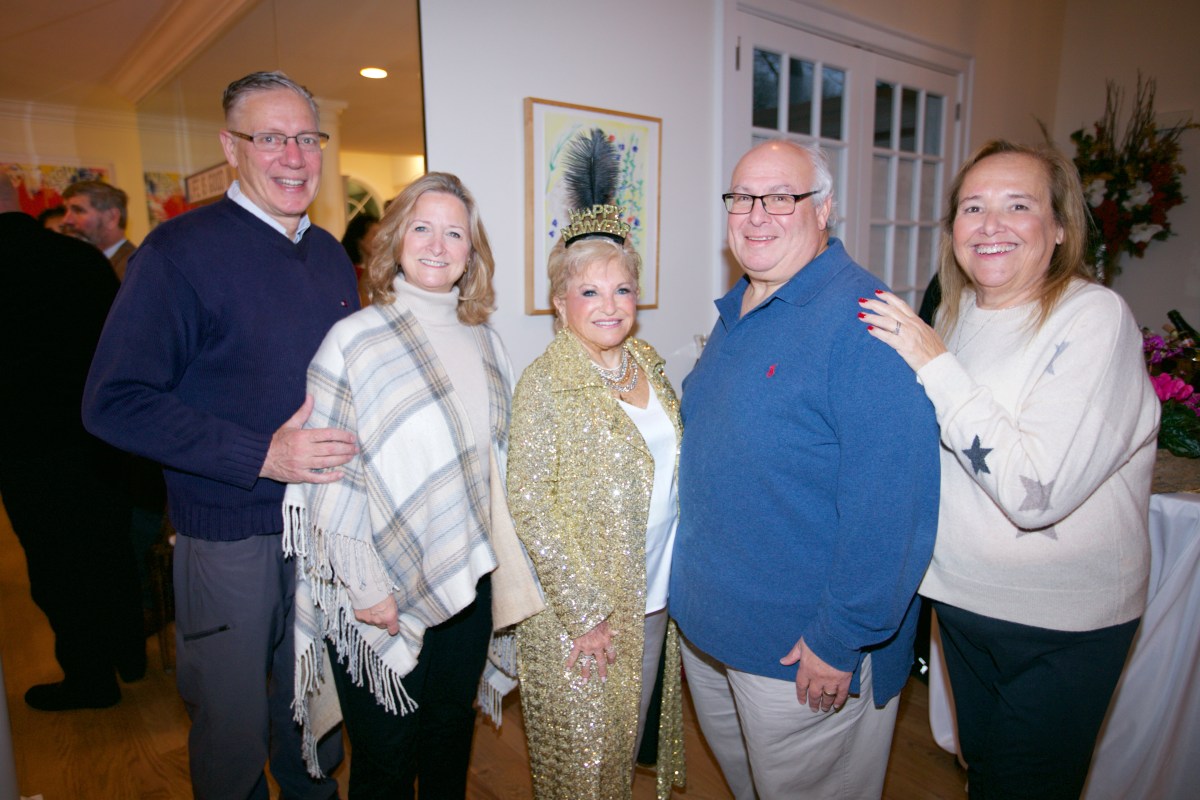Support For Styrofoam, Straw Ban

Every minute, one garbage truck of plastic is dumped into our oceans, and by 2050, plastics in our waters will outweigh fish pound for pound, according to nonprofit organization World Economic Forum.
“We all need to change our behavior,” Southampton Town Councilwoman Julie Lofstad told residents at a January 24 meeting, before handing in a letter of support from Suffolk County Legislator Kara Hahn for her proposal to ban polystyrene products and plastic straws. “Because if we don’t, we won’t have our environment anymore — these beautiful oceans and bays will be gone.”
The town board gathered opinion during the first of two scheduled hearings on the ban of the use of plastic straws and polystyrene products, more commonly known by the brand name Styrofoam. The ban would include cups, coolers, and loose foam fill known as packing peanuts. Every speaker expressed overwhelming support for the proposal, just as they did when a similar hearing was held by the East Hampton Town Board on January 17. East Hampton adopted its own ban on polystyrene that same evening.
Janice Scherer, the town’s assistant planning director, who is also the liaison of the Southampton Sustainability Advisory Committee, pointed to a 2012 adopted sustainability plan called Southampton 400+, which has acted as a guiding set of principles “to achieve healthy and resilient communities and natural systems.”
“To achieve these goals, the town needs to minimize human degradation of natural systems, reduce dependence on manmade chemicals and synthetic substances, and reduce wasteful use of natural materials,” the plan states.
Tip Brolin, chairman of the Sustainable Southampton Green Advisory Committee, helped write the proposed law. He said that after extrapolating from U.S. data, he found the town discards 20 million plastic straws and eight million Styrofoam cups a year.
“They have a useful life between minutes and a few hours. They are not recyclable, and last indefinitely in landfills and our bays and oceans,” he said. “They kill birds and sea life who think they are food. Help keep our town and beaches clean.”
A survey of local businesses, conducted with the help of Lofstad and others on his committee, he said he found 98 percent had no objection to the proposal. The others said, despite some qualms about the ban, they would adhere to it.
“Many indicated they were already headed in this direction,” he said.
Maria Hults, the president of the Hampton Bays Civic Association, who has long been a proponent of clean water, said she can’t wait until the day Dunkin’ Donuts will not be allowed to give her the 30 to 40 plastic stirrers she keeps asking cashiers not to put in her bag when ordering coffee for her monthly meetings.
The Surfrider Foundation, a grassroots environmental non-profit that works to protect and preserve the world’s oceans, waves, and beaches, ran a Strawless Summer campaign last year, in which 45 food establishments pledged to switch from plastic to biodegradable materials, or get rid of plastic altogether. Hampton Bays high and middle schools were among those who made the pledge, according to Andrew Brosnan, chairman of the Eastern Long Island chapter of the Surfrider Foundation.
Brosnan and Jordan Christensen, program coordinator for the Citizens Campaign for the Environment, also pointed out that plastics swallowed by wildlife get ingested by people through the process known as bioaccumulation. Christiansen added that the ban would not only aid our health but the solid waste crisis, providing an economic reason to switch to more sustainable solutions because polystyrene contaminates recyclables like cardboard and paper.
Carolyn Munaco, a lifelong resident of Hampton Bays who was recruited by the Surfrider Foundation, became the nonprofit’s Rise Above Plastics coordinator, picking up tens of thousands of pieces of plastic off shorelines. After four cleanups in one month last year, she said 2700 pounds of plastic were picked up. The tally included 8051 bottle caps, 922 straws, and 407 takeout containers.
“I think all plastics, even the recyclable, should get the boot,” Munaco said, begging the town to disallow the purchase of plastic bottles, including banning them from being dispensed from vending machines, and banning Mylar balloons.
Hampton Bays resident Bonnie Doyle said hearing complementary opinions made her smile.
East Hampton Town is considering a separate ban on the intentional release of balloons. A total of 774 balloons was removed from beaches from Westhampton to Montauk between June 2017 and December 2018, “and that doesn’t include what ends up in the water,” Doyle said, in urging the town to follow suit.
desiree@indyeastend.com



